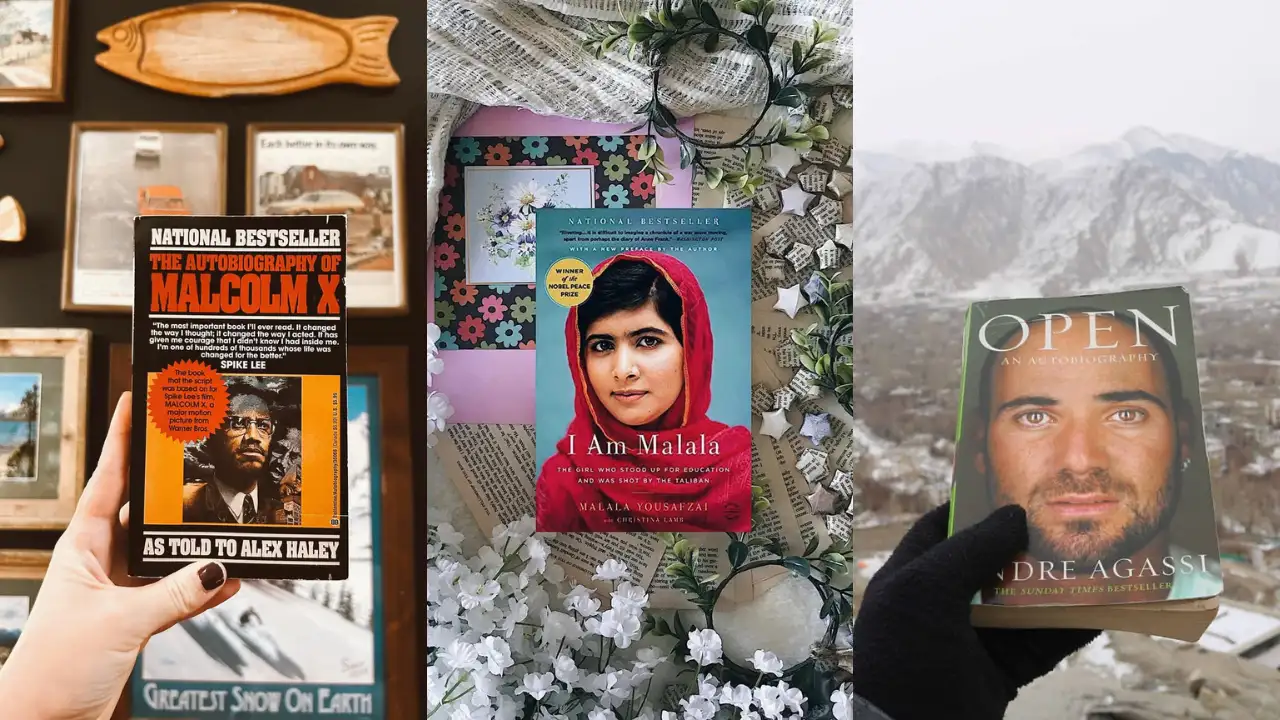Copyright timesnownews

Have you ever wondered who really wrote your favourite bestseller? The publishing world holds a fascinating secret that might surprise you. Many books sitting on your shelf, the ones you've quoted at dinner parties or recommended to friends, weren't actually written by the person whose name shines on the cover. Ghostwriting is publishing's open secret; a practice where talented writers craft entire books while someone else takes the credit. From political memoirs to celebrity autobiographies, these invisible authors shape stories that millions read, yet their names remain hidden in the shadows. This list reveals six famous books in which the real writer stayed behind the curtain, proving that sometimes the most interesting story is the one about who actually told it. Also Read: 6 Short Horror Books You Can Finish in One Terrifying Halloween Night 1. Jason Bourne Series (Post-Ludlum Novels) Robert Ludlum created the Jason Bourne character and wrote the original trilogy, including 'The Bourne Identity', 'The Bourne Supremacy', and 'The Bourne Ultimatum', before he died in 2001. The estate then hired Eric Van Lustbader to continue the series, producing over a dozen additional Bourne novels starting with 'The Bourne Legacy' in 2004. Van Lustbader brought his own style while maintaining the espionage thriller framework Ludlum established, keeping Bourne active through contemporary geopolitical scenarios. The arrangement represents a common practice in publishing where popular characters outlive their creators, with estates authorising continuation by other writers to maintain commercial franchises. Readers often do not realise the later Bourne novels are not by the original author, assuming continuity because the books prominently feature Ludlum's name alongside or sometimes larger than Van Lustbader's. 2. The Autobiography of Malcolm X One of the most influential autobiographies in American literature was actually written by Alex Haley based on extensive interviews with Malcolm X conducted over two years before Malcolm's assassination in 1965. Haley conducted hours of conversations with Malcolm X, recording his life story from his troubled childhood through his criminal years, his conversion to the Nation of Islam, his rise as an influential spokesman, and his eventual break with the organisation. The collaboration involved Malcolm X reviewing and approving sections, suggesting it was more collaborative than typical ghostwriting, yet Haley shaped the narrative structure, prose style, and thematic emphasis that made the book so powerful. Haley's epilogue describes their working relationship and the challenges of capturing Malcolm's evolving perspective as his political and religious views shifted during the writing process. The book's authorship credit lists Malcolm X as author, with Haley's contribution acknowledged, though the extent of Haley's writing versus transcription remains subject to scholarly debate. 3. Playing It My Way by Sachin Tendulkar The autobiography of one of cricket's greatest players was ghostwritten by sports journalist Boria Majumdar, who conducted extensive interviews with Tendulkar to create the narrative. Sachin Tendulkar retired from international cricket in 2013 after a career spanning 24 years, holding numerous records and achieving legendary status in India, where cricket approaches religious fervour. Majumdar spent considerable time with Tendulkar gathering stories about his childhood training, his debut as a teenager, memorable matches, relationships with teammates, and his perspective on cricket's evolution during his career. The book provides an insider view of Indian cricket, discussing controversies, match-fixing scandals that rocked the sport, and Tendulkar's own philosophy about batting and competition. While credited to Tendulkar, Majumdar's role in shaping the material into a coherent narrative was substantial, though the content reflects Tendulkar's memories and perspectives. 4. I Am Malala by Malala Yousafzai The memoir of the young Pakistani activist who survived a Taliban assassination attempt was co-written with British journalist Christina Lamb, though Malala receives primary author credit. Malala Yousafzai became an international symbol for girls' education after the Taliban shot her for her advocacy. Her recovery and continued activism earned her the Nobel Peace Prize at age 17. Christina Lamb, an experienced foreign correspondent who covered Pakistan extensively, helped shape Malala's story from her childhood in Swat Valley through the attack and its aftermath. The collaboration involved extensive interviews where Malala shared her memories, with Lamb providing context about the Taliban's rise in the region, Pakistani politics, and the broader implications of Malala's advocacy. Lamb's journalism experience helped structure the narrative and provide historical background that teenage Malala could not be expected to supply, creating a book that works both as a personal memoir and a political document. The ghostwriting credit is acknowledged more openly than in some celebrity memoirs, with Lamb listed as co-author rather than a hidden contributor. 5. Open: An Autobiography by Andre Agassi The tennis champion's brutally honest memoir, revealing his hatred for the sport that made him famous, was actually written by Pulitzer Prize-winning journalist J.R. Moehringer. Andre Agassi's autobiography became a sensation for its candid revelations, including his admission of using crystal meth, his resentment toward his abusive father, who forced him into tennis, and his confession that he hated playing the sport for much of his career. J.R. Moehringer spent extensive time with Agassi conducting interviews that produced the raw material, then crafted it into a compelling narrative with literary quality unusual for sports memoirs. The prose style, structure, and emotional depth reflect Moehringer's skills as a writer, though the content and perspective are Agassi's, creating collaboration where the line between author and subject blurs. Moehringer's contribution was initially not widely publicised, with the book credited solely to Agassi, leading many readers to assume the tennis player wrote it himself until later reporting revealed the ghostwriter's crucial role. The book won critical acclaim for its honesty and writing quality, with reviewers praising what they thought was Agassi's prose before learning of Moehringer's involvement. Also Read: 6 Books That Were Lost, Found, And Then Published 6. James Patterson's Alex Cross Novels The bestselling thriller writer James Patterson has used co-authors for many of his novels, including later entries in his popular Alex Cross series, though his name dominates the covers. Patterson developed a business model where he creates outlines and plot structures, then works with co-authors who do much of the actual writing, with Patterson editing and revising the drafts. The Alex Cross series, featuring the Washington D.C. detective and psychologist, began with novels Patterson wrote himself, but as his brand expanded and he published multiple books per year, the co-author system became necessary to maintain his prolific output. Books credit Patterson as the author, with co-authors listed in smaller print, creating the impression that he wrote them, while the actual division of labour remains undisclosed. The arrangement has drawn criticism from literary purists who argue it deceives readers and devalues writing as craft, while defenders note that Patterson's outlines and editing justify primary credit and that many bestselling authors use similar methods without acknowledgement. These six books remind us that storytelling is more complex than a single name on a cover. Ghostwriters are the unsung heroes of publishing, transforming rough ideas into polished prose and giving voice to those who have stories but lack the skill or time to write them. While some might see this as deceptive, ghostwriting is simply collaboration in its most invisible form. The next time you pick up a celebrity memoir or political autobiography, remember there's likely another writer who deserves recognition. These hidden authors keep the publishing world turning, proving that great books aren't always about who gets the credit, but about whether the story resonates. Sometimes the best writers are the ones you never see.



